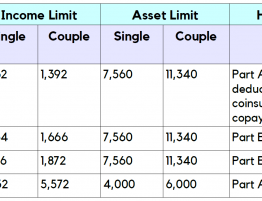
You’re getting ready to retire, and you’re thinking about your expenses. One expense you’d like to forgo is the premium you pay for the life insurance policy you bought decades ago. The question is: Are your only two options to pay the premiums or cancel your coverage? The answer is no, you usually have other alternatives.

Stop paying premiums
When you have excess cash value built up in your policy, the cash value can pay the premium. You can tell the insurance company to withdraw or loan the premiums for your policy from your cash value. This will lower your death benefit because of the policy loans and accumulating interest, but your coverage will continue.
Sell your policy
Your life insurance was priced based on your life expectancy at the time you applied for the policy. But now a health condition may be shortening how many years you’re expected to live. That means, callous as it may sound, someone may be willing to pay good money for your policy. This option is commonly called a life settlement, and there are a number of companies that will assess your life expectancy and make an offer to buy your policy.
Donate your policy
If you don’t need the death benefit from your policy anymore, consider donating the policy to your favorite charity. You’ll get a current tax deduction for the value of the policy. When donating, ask whether the charity plans to continue premium payments (so it can collect the full death benefit) or surrender the policy for its cash value. This may affect your decision as to which charity you choose.
Have your IRA pay the premiums
You may be thinking, “What’s the difference between me paying the premiums and my IRA paying the premiums? Isn’t it still cash out of pocket?” The better question is, Do you intend to leave a legacy to your heirs when you die? A life insurance policy has the advantage of being a known, income-tax-free payment to beneficiaries, regardless of the stock market’s performance at the time of your death. If you plan to convey wealth at your passing, the life insurance policy you’ve owned all these years may be the perfect asset.
So, think about paying the annual premium through partial withdrawals from your IRAs. Although you’ll pay tax on these withdrawals, you are effectively spreading your taxes over your remaining lifetime. This may help in your Social Security filing strategy and limiting the required minimum distributions (RMDs) you’ll begin taking at age 72.
Work with your financial adviser to determine the best approach, including the possibility of using a Roth IRA to pay some of the premiums.
This article was adapted from Kiplinger’s article. Please visit their website to read the full article.


